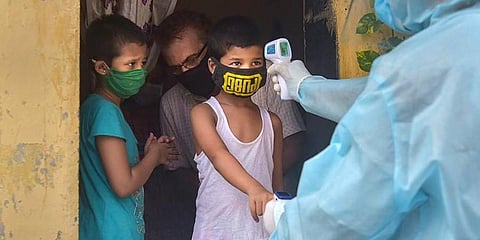

COIMBATORE: Advocating for a shift from the usage of thermal scanners to finger-pulse oximeters, health experts have termed the latter a life-saving tool as it helps a doctor determine oxygen saturation (known as spO2 level) in the blood and decide if a patient needs extra oxygen.
While low-oxygen levels indicate damage in the lungs which in turn can mean a possible Covid-19 infection, thermal scanners are just to detect body temperature, they said.
Former Director of Public Health K Kolandasamy said that the pulse oximeters, which costs around Rs 1,300, are a life-saving tool.
"The normal range of spO2 level is between 95 and 100 per cent. If it is less than 95, it means a patient needs oxygen supplement through hospitalisation. If people under home quarantine have SpO2 level of less than 95, then they need to be treated."
Kolandasamy added that medical students are encouraged to buy this instrument to have it with them whenever they need it.
In Coimbatore, the pulse oximeters are used at ward-level fever camps. According to a source, a private laboratory here has diagnosed five patients with lung damage in the past five days with the help of the pulse oximeter.
A health department official said that the majority of the Covid patients who died in Coimbatore because of lung damage, which could easily be detected using a pulse oximeter.
"The patients with lung damage may succumb or live the rest of their lives with breathing difficulties after recovery. So residents can buy an oximeter and check the readings periodically. The usage of thermal scanners must be replaced by pulse oximeters in public and workplaces," the official said.
A renowned Virologist T Jacob John said, "The pocket-friendly device must be used periodically and a decision must be taken if the readings go below 95 per cent."
"Thermal scanners do not accurately gauge fever in a person. Using them gives us a false sense of security," John added.
Pulse oximeter readings:
95 to 100 per cent- Normal
90 to 95 per cent- Needs medical attention
Less than 90 per cent- Needs oxygen support
Less than 80 per cent- Critical
Less than 70 per cent- Most vulnerable